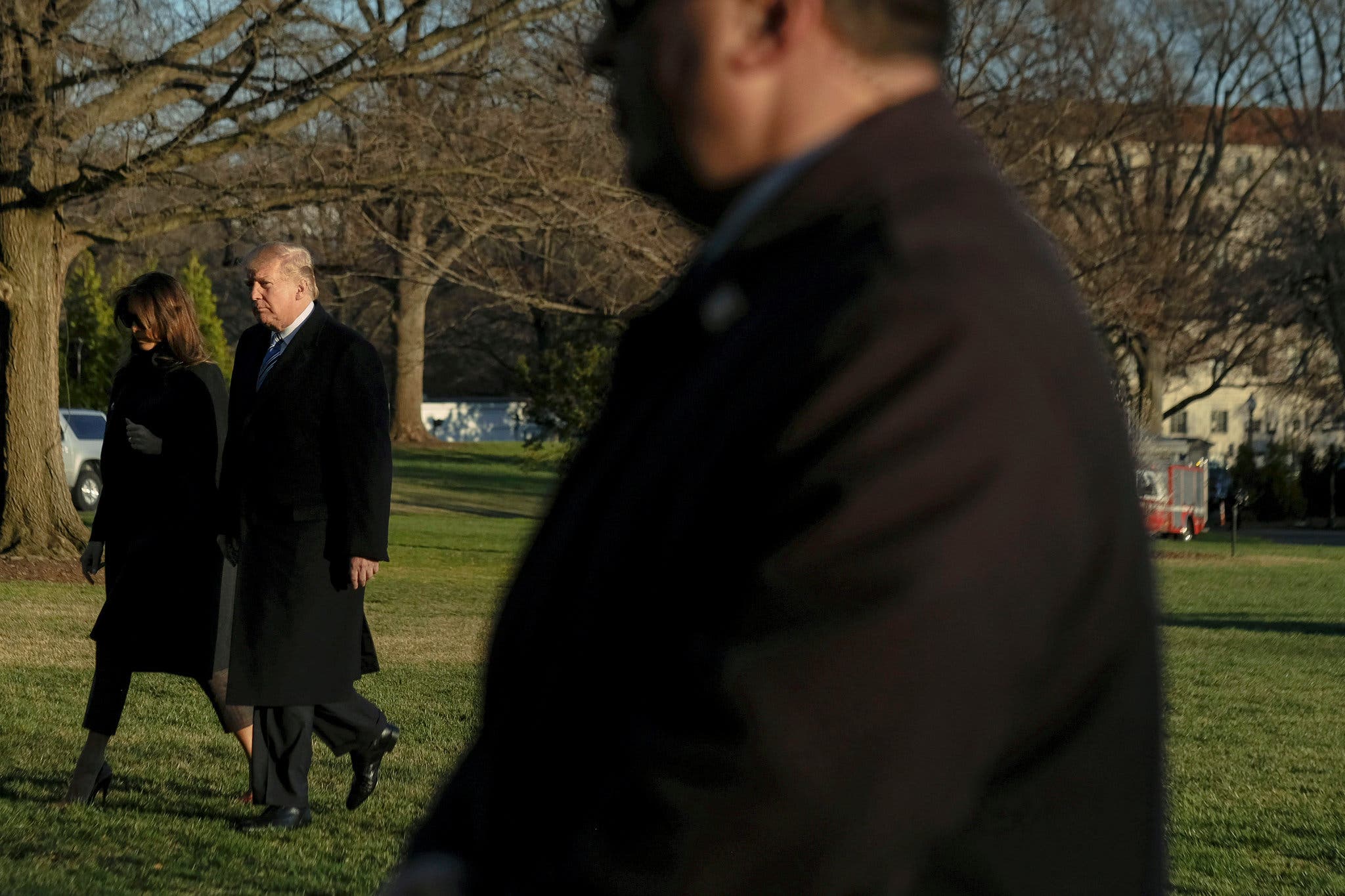The Trump Administration And The Threat Of Aircraft And Engine Tariffs

Table of Contents
The Genesis of the Aircraft and Engine Tariffs
The imposition of tariffs on aircraft and engine parts wasn't a spontaneous act but rather the culmination of a protracted trade dispute fueled by accusations of illegal government subsidies. Understanding the genesis requires examining both the legal mechanisms employed and the underlying Airbus-Boeing conflict.
Section 301 Investigations and WTO Disputes
The legal basis for the tariffs stemmed from Section 301 of the Trade Act of 1974, which allows the US Trade Representative (USTR) to investigate and retaliate against foreign trade practices deemed unfair or unreasonable. Investigations launched under Section 301 concluded that both Airbus and Boeing received improper government subsidies, leading to retaliatory tariffs.
- Key findings of the investigations: The investigations found that Airbus received billions of dollars in illegal subsidies from European governments, distorting the market and harming US interests. Conversely, while Boeing also received some subsidies, the investigations determined that these were not on the same scale as those provided to Airbus.
- WTO's role and rulings: The World Trade Organization (WTO) became involved in the dispute, hearing appeals from both the US and the EU. The WTO ruled against both Airbus and Boeing, finding that both companies had received illegal subsidies. However, the rulings were largely seen as a victory for the US, as the level of subsidies found in favor of Airbus was significantly higher.
- Specific cases and legal challenges: The legal battles involved numerous appeals and counter-appeals, reflecting the complexity and protracted nature of the dispute. This included specific cases highlighting examples of alleged illegal subsidies provided by European governments to Airbus and the US government to Boeing.
The Airbus-Boeing Subsidy Dispute
The Airbus-Boeing dispute is a decades-long saga marked by accusations of unfair competition and government support. This long-standing rivalry fueled the escalation of tariffs.
- Accusations against each company: The US accused Airbus of receiving substantial illegal subsidies from European governments in the form of loans, grants, and tax breaks. The EU, in turn, accused Boeing of benefiting from similar, albeit smaller, subsidies from the US government.
- How subsidies fueled the tariff war: The perceived unfair advantage gained by each company through government support intensified competition and ultimately triggered the retaliatory tariffs. Each side argued that the subsidies allowed their respective companies to undercut prices and gain market share unfairly.
- Retaliatory tariffs imposed by the EU: Following the US's imposition of tariffs, the EU retaliated with its own tariffs on US goods, including agricultural products and other manufactured items. This tit-for-tat exchange further exacerbated the trade war.
Economic Impacts of the Tariffs
The aircraft and engine tariffs had significant economic consequences, impacting not only Boeing and Airbus but also the broader global economy.
Impact on Boeing and the US Aerospace Industry
The tariffs placed considerable strain on Boeing.
- Data on job losses and production cuts: While precise figures are difficult to isolate directly to the tariffs, industry reports indicated potential job losses and adjustments in Boeing's production plans.
- Impact on Boeing's supply chain: The tariffs disrupted Boeing's supply chains, affecting component suppliers and increasing costs.
- Competitiveness of the US aerospace industry: The tariffs raised concerns about the long-term competitiveness of the US aerospace industry in the face of increased production costs.
Impact on Airbus and the European Aerospace Industry
Similarly, Airbus faced challenges due to the retaliatory tariffs.
- Data on job losses and production cuts: Airbus also experienced potential disruptions, leading to adjustments in production schedules and employment levels.
- Impact on Airbus's supply chain: The EU tariffs disrupted Airbus's supply chains, impacting component suppliers and increasing production costs.
- Competitiveness of the European aerospace industry: The tariffs had the potential to undermine the competitiveness of the European aerospace industry in the long run.
Global Economic Implications
The trade war extended far beyond Boeing and Airbus, impacting consumers and global supply chains.
- Impact on other industries reliant on aircraft and engines: The ripple effect extended to industries reliant on aircraft and engines, including airlines and related support services.
- Analysis of the overall cost of the trade war: The overall economic cost, encompassing lost productivity and increased prices for consumers, was substantial and difficult to quantify precisely.
The Aftermath and Long-Term Consequences
The long-term ramifications of the aircraft and engine tariffs are still unfolding.
Negotiations and Trade Agreements
Efforts were made to de-escalate the trade war and reach a resolution.
- Progress made in de-escalating tensions: While there were periods of negotiation, a complete resolution remained elusive during the Trump administration.
- Potential future agreements: The future of trade relations between the US and the EU in the aerospace sector remains dependent on future trade agreements and a commitment to fair competition.
The Future of the Aerospace Industry
The tariffs had a lasting impact on the global aerospace industry.
- Shifts in market share and production: The tariffs may have caused shifts in market share and production patterns, though the precise extent is still being assessed.
- Impact on innovation and technological development: The trade war potentially hindered innovation and technological development due to disruptions and uncertainty.
- Predictions for the future of international cooperation: The long-term effects on international cooperation in the aerospace sector depend on future trade agreements and the commitment to fair competition.
Conclusion
The Trump administration's aircraft and engine tariffs represent a significant chapter in the history of international trade and the aerospace industry. These tariffs had a profound impact on Boeing and Airbus, disrupting supply chains, potentially affecting employment, and contributing to a broader trade war. The economic consequences, including increased consumer prices and disruptions to global supply chains, were substantial and far-reaching. The long-term effects on international cooperation and the competitiveness of the global aerospace industry are still being felt and analyzed.
Further research is crucial to fully understand the complex ramifications of these tariffs. Continue exploring the intricacies of aircraft and engine tariffs and their lasting impact on the global economy by researching relevant governmental reports, academic studies, and news articles on this complex issue. Understanding the complexities of aircraft tariffs and engine tariffs is essential for navigating the future of international trade in the aerospace sector.

Featured Posts
-
 Evaluating Palantir Following A 30 Market Correction
May 10, 2025
Evaluating Palantir Following A 30 Market Correction
May 10, 2025 -
 1 420
May 10, 2025
1 420
May 10, 2025 -
 What Is A Real Safe Bet And How To Find It
May 10, 2025
What Is A Real Safe Bet And How To Find It
May 10, 2025 -
 Dakota Johnsons Role Choices The Chris Martin Factor
May 10, 2025
Dakota Johnsons Role Choices The Chris Martin Factor
May 10, 2025 -
 Aoc Vs Pirro A Fact Check Showdown On Fox News
May 10, 2025
Aoc Vs Pirro A Fact Check Showdown On Fox News
May 10, 2025
